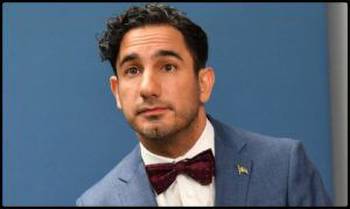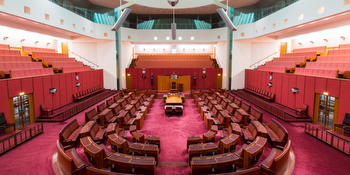BOS Claims Swedish Banking Institutions Have Suspended Services Provided to Licensed Gambling Operators

Gustaf Hoffstedt, secretary-general of the Swedish trade association Branscheforenigen för Onlinespel (BOS), has claimed that all of the country’s major banking institutions have suspended services they provide to licensed gambling operators.
BOS said that “all major Nordic banks” – including SEB, Swedbank, Nordea, Handelsbanken, DNB Nor and Danske Bank – stopped providing services to Swedish-licensed gambling operators at some point this year.
Claiming this is in violation of Swedish law, Hoffstedt has filed a complaint to the country’s Financial Supervisory Authority (Finansinspektionen).
Most of these banks, Hoffstedt said, cited internal risk assessments or Sweden’s Anti-Money Laundering Act (PTL) as the reasons for account closures. The BOS secretary-general added that “in some cases the banks have not stated any reason at all”.
“As far as I am aware, no concrete justification for the dismissals and banks’ assessment has been provided in any case,” Hoffstedt said.
Hoffstedt added that gambling operators cannot function without banking services.
“Online gambling companies are, as stated above, dependent on basic financial infrastructure in the form of banking and payment services to conduct their business,” he explained. “This requires [them] to be able to store customers’ funds as well as receive deposits and make payments to customers.”
He added that the suspension of services meant that operators could no longer use Bank-ID, used to verify players’ identities. This meant they had lost access to a tool that was vital for fighting fraud and money laundering, Hoffstedt.
“Without access to the Bank-ID system, online gambling companies need to use alternative solutions to identify their customers. These solutions risk being neither as effective for companies nor as safe for users,” he explained.
Swedish Banks also provide the Swish payment service, which Hoffstedt said was also “very important” for operators.
Hoffstedt said that the banks’ decisions had worsened operating conditions for the country’s igaming licensees, as well as counteracting the goals of the Gambling Act.
He went as far as arguing that the actions were illegal.
Hoffstedt said banks have a contractual obligation to continue to provide banking services to these customers, unless there is a clear reason to break this agreement. Only in incidents where continuing to provide banking services would violate the PTL, or if the banking customer had committed misconduct, could agreements be broken, he claimed.
While Hoffstedt noted that banks may terminate agreements if they suspect a customer has connections to money laundering, he pointed out the PTL made clear that these assessments are at the customer level. They can, therefore, not be applied on a sweeping basis to a legal industry.
“Given that a large proportion of BOS members also received notice or notice of termination from the banks – all with general and overarching references to the risk of money laundering in the business – it seems obvious that the basis for the dismissals is a general business policy decision rather than a valid application of PTL,” he said.
“Under these circumstances, there is no possibility for the banks to deviate from their contractual obligation.”
BOS requested a dialogue with the Financial Supervisory Authority and said the regulator “should initiate a supervisory investigation of the banks’ handling and possibly intervene against the banks”.
SEB – one of the banks mentioned by BOS – however, argued it was not systematically ending relationships with gambling operators but rather examined the risk for every client on an individual basis.
“We always make an individual assessment of individual client relationships,“ SEB said. “When it comes to gambling companies, we generally have a cautious approach based on the raised risk level, not least connected to risks relating to money laundering and financial crime.”
Danske Bank, meanwhile, denied it had a policy specifically preventing gambling businesses from operating, but did say these businesses undergo a stricter screening process.
“Danske Bank does not exclude banking services for gambling operations as such,” Danske Bank said. “However, our assessment is that the gambling industry in general is associated with high risk and due to that we have tailored screening principles to ensure that the companies operate responsibly.
“In a case where a specific gambling client does not meet the requirements of our KYC-process or ESG-assessment, the ultimate consequence could be that we limit our offerings or refrain from enter into a business relationship.”






































